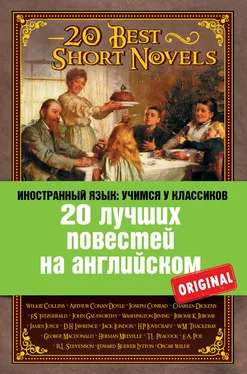No person who has read the preceding volumes of this history, as the famous chronicler of Abbotsford has recorded them, can doubt for a moment what was the result of the marriage between Sir Wilfrid of Ivanhoe and Lady Rowena. Those who have marked her conduct during her maidenhood, her dislanguished politeness, her spotless modesty or demeanor, her unalterable coolness under all circumstances, and her lofty and gentlewomanlike bearing, must be sure that her married conduct would equal her spinster behavior, and that Rowena the wife would be a pattern of correctness for all the matrons of England.
Such was the fact. For miles around Rotherwood her character for piety was known. Her castle was a rendezvous for all the clergy and monks of the district, whom she fed with the richest viands, while she pinched herself upon pulse and water. There was not an invalid in the three Ridings, Saxon or Norman, but the palfrey of the Lady Rowena might be seen journeying to his door, in company with Father Glauber, her almoner, and Brother Thomas of Epsom [749], her leech. She lighted up all the churches in Yorkshire [750]with wax-candles, the offerings of her piety. The bells of her chapel began to ring at two o’clock in the morning; and all the domestics of Rotherwood were called upon to attend at matins, at complins, at nones, at vespers, and at sermon. I need not say that fasting was observed with all the rigors of the Church; and that those of the servants of the Lady Rowena were looked upon with most favor whose hair-shirts were the roughest, and who flagellated themselves with the most becoming perseverance.
Whether it was that this discipline cleared poor Wamba’s wits or cooled his humor, it is certain that he became the most melancholy fool in England, and if ever he ventured upon a pun to the shuddering poor servitors, who were mumbling their dry crusts below the salt, it was such a faint and stale joke that nobody dared to laugh at the innuendoes of the unfortunate wag, and a sickly smile was the best applause he could minister. Once, indeed, when Guffo, the goose-boy (a half-witted poor wretch), laughed outright at a lamentably stale pun which Wamba palmed upon him at supper-time, (it was dark, and the torches being brought in, Wamba said, ‘Guffo, they can’t see their way in the argument, and are going to throw a little light upon the subject,’) the Lady Rowena, being disturbed in a theological controversy with Father Willibald, (afterwards canonized as St. Willibald, of Bareacres, hermit and confessor,) called out to know what was the cause of the unseemly interruption, and Guffo and Wamba being pointed out as the culprits, ordered them straightway into the court-yard, and three dozen to be administered to each of them.
‘I got you out of Front-de-Boeuf’s castle,’ said poor Wamba, piteously, appealing to Sir Wilfrid of Ivanhoe, ‘and canst thou not save me from the lash?’
‘Yes, from Front-de-Boeuf’s castle, where you were locked up with the Jewess in the tower!’ said Rowena, haughtily replying, to the timid appeal of her husband. ‘Gurth, give him four dozen!’
And this was all poor Wamba got by applying for the mediation of his master.
In fact, Rowena knew her own dignity so well as a princess of the royal blood of England, that Sir Wilfrid of Ivanhoe, her consort, could scarcely call his life his own, and was made, in all things, to feel the inferiority of his station. And which of us is there acquainted with the sex that has not remarked this propensity in lovely woman, and how often the wisest in the council are made to be as fools at her board, and the boldest in the battle-field are craven when facing her distaff?
‘Where you were locked up with the Jewess in the tower,’ was a remark, too, of which Wilfrid keenly felt, and perhaps the reader will understand, the significancy. When the daughter of Isaac of York brought her diamonds and rubies – the poor gentle victim! – and, meekly laying them at the feet of the conquering Rowena, departed into foreign lands to tend the sick of her people, and to brood over the bootless passion which consumed her own pure heart, one would have thought that the heart of the royal lady would have melted before such beauty and humility, and that she would have been generous in the moment of her victory.
But did you ever know a right-minded woman pardon another for being handsome and more love-worthy than herself? The Lady Rowena did certainly say with mighty magnanimity to the Jewish maiden, ‘Come and live with me as a sister, as the former part of this history shows; but Rebecca knew in her heart that her ladyship’s proposition was what is called bosh (in that noble Eastern language with which Wilfrid the Crusader was familiar), or fudge, in plain Saxon; and retired with a broken, gentle spirit, neither able to bear the sight of her rival’s happiness, nor willing to disturb it by the contrast of her own wretchedness. Rowena, like the most high-bred and virtuous of women, never forgave Isaac’s daughter her beauty, nor her flirtation with Wilfrid (as the Saxon lady chose to term it) ; nor, above all, her admirable diamonds and jewels, although Rowena was actually in possession of them.
In a word, she was always flinging Rebecca into Ivanhoe’s teeth. There was not a day in his life but that unhappy warrior was made to remember that a Hebrew damsel had been in love with him, and that a Christian lady of fashion could never forgive the insult. For instance, if Gurth, the swineherd, who was now promoted to be a gamekeeper and verderer, brought the account of a famous wild-boar in the wood, and proposed a hunt, Rowena would say, ‘Do, Sir Wilfrid, persecute these poor pigs: you know your friends the Jews can’t abide them! Or when, as it oft would happen, our lionhearted monarch, Richard, in order to get a loan or a benevolence from the Jews, would roast a few of the Hebrew capitalists, or extract some of the principal rabbis’ [751]teeth, Rowena would exult and say, ‘Serve them right, the misbehaving wretches! England can never be a happy country until every one of these monsters is exterminated! – or else, adopting a strain of still more savage sarcasm, would exclaim, ‘Ivanhoe my dear, more persecution for the Jews! Hadn’t you better interfere, my love? His Majesty will do anything for you; and, you know, the Jews were always such favorites of yours ,’ or words to that effect. But, nevertheless, her ladyship never lost an opportunity of wearing Rebecca’s jewels at court, whenever the Queen held a drawing-room; or at the York assizes and ball, when she appeared there: not of course because she took any interest in such things, but because she considered it her duty to attend, as one of the chief ladies of the county.
Thus Sir Wilfrid of Ivanhoe, having attained the height of his wishes, was, like many a man when he has reached that dangerous elevation, disappointed. Ah, dear friends, it is but too often so in life! Many a garden, seen from a distance, looks fresh and green, which, when beheld closely, is dismal and weedy; the shady walks melancholy and grass-grown; the bowers you would fain repose in, cushioned with stinging-nettles. I have ridden in a caique upon the waters of the Bosphorus [752], and looked upon the capital of the Soldan of Turkey. As seen from those blue waters, with palace and pinnacle, with gilded dome and lowering cypress, it seemeth a very Paradise of Mahound: but, enter the city, and it is but a beggarly labyrinth of rickety huts and dirty alleys, where the ways are steep and the smells are foul, tenanted by mangy dogs and ragged beggars – a dismal illusion! Life is such, ah, well-a-day! It is only hope which is real, and reality is a bitterness and a deceit.
Perhaps a man with Ivanhoe’s high principles would never bring himself to acknowledge this fact; but others did for him. He grew thin, and pined away as much as if he had been in a fever under the scorching sun of Ascalon [753]. He had no appetite for his meals; he slept ill, though he was yawning all day. The jangling of the doctors and friars whom Rowena brought together did not in the least enliven him, and he would sometimes give proofs of somnolency during their disputes, greatly to the consternation of his lady. He hunted a good deal, and, I very much fear, as Rowena rightly remarked, that he might have an excuse for being absent from home. He began to like wine, too, who had been as sober as a hermit; and when he came back from Athelstane’s (whither he would repair not unfrequently), the unsteadiness of his gait and the unnatural brilliancy of his eye were remarked by his lady: who, you may be sure, was sitting up for him. As for Athelstane, he swore by St. Wullstan that he was glad to have escaped a marriage with such a pattern of propriety; and honest Cedric the Saxon (who had been very speedily driven out of his daughter-in-law’s castle) vowed by St. Waltheof that his son had bought a dear bargain.
Читать дальше
Конец ознакомительного отрывка
Купить книгу












